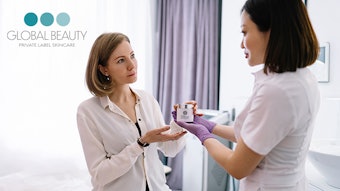Although spas in affluent communities continue to serve a dedicated clientele who are committed to health and wellness, facilities in other areas are having a more difficult time in maintaining productivity. Factors ranging from high energy prices to job insecurity are leading many clients to view spas as a discretionary expense rather than as an investment in their overall health.
“I tell my clients that it’s important to take care of their skin and explain to them all of the benefits,” says Christine Delos Reyes, manager of Jeanne Hall Therapy in Derry, New Hampshire. “Their excuses are: ‘I have a kid in college and one at home.’ ”
“Not only have there been changes in gas prices, but also locally you have the paper mill that has been in danger of layoffs, or even might close, which will affect the entire community,” says Ingrid Langley, owner of Ingrid S. Skin Care in Lincoln, Maine.
If you are a spa owner whose clientele has been hit by economic difficulty, one way to adjust is by changing your marketing strategy. Here are some lessons from spas that are enjoying productive times.
It all begins with you
“You have to start with the basics,” says Valerie Tukey, owner of Aesthetics by Valerie in Nashua, New Hampshire. “The devil is in the details. Is the bed cold? Are your hands warm? Are you taking notes and remembering a client’s skin care needs for the next time they visit? People must take an inventory of what they’re doing and make sure that each client feels they are the most important person in the world. If you do that, they will keep coming to you.”
According to Tukey, these small details will make the difference between a one-time client and a loyal one. She has owned her skin care practice for two years and attributes her success to treating every client like gold. In the New Hampshire community where she rents space in a refurbished Victorian home, Tukey’s clients range from students to executives. She is enjoying growth based solely on referrals. Avoiding direct mailers and other forms of advertisement, Tukey utilizes each of her patrons as a marketing tool, believing that a happy client is one who will refer their friends.
In addition, she has broadened her services and now offers makeup, as well as Reiki. According to Tukey, diversity is her secret. “I consciously say: ‘If I am going to survive in this business, I had better know how to do a lot of things.’ ”
Get involved in your community
Whether the service offered is a facial, massage or manicure, community outreach is a useful marketing practice. To attract clients and increase health awareness in Quechee, Vermont, the staff at The Strong House Spa offers massages at the end of marathons and breast cancer walks. Neighborhood running clubs, local schools and organic markets also have been excellent venues for the spa’s community service-based marketing. “Athletes know that massage is a part of their workout. First you work out, then you loosen the muscles,” says Sheila Armen, co-owner of The Strong House Spa. “Now we’re trying to get the layperson to say, ‘I want to make this a part of my life.’ ”
Other marketing possibilities include what technique esthetician and mind/body concierge Sarah Kirsch, of Exhale in Brighton, Massachusetts, calls guerrilla marketing. This method involves team members placing postcards under windshield wipers and in bridal boutiques in Boston. Exhale also is planning on getting involved with the Yoga Journal conference and places service coupons in goody bags at the Tufts Health Plan 10K for Women.
To offset job cutbacks in her city, Joyce Piasecki, owner of Joyce Salon and Day Spa in Grosse Pointe, Michigan, donates deluxe manicures to hospital fundraisers and gives discounts to women who work there. She also participates in sidewalk sales by handing out fliers for services. “If you have a few clients who stay with you for a long time, you’ve made your money from them,” Piasecki notes. “I do bring them in, but the trick is to keep them.” And although the car-focused workforce of Michigan has experienced layoffs that have affected her clientele, her business is growing.
Networking
Tukey remains current regarding developments within the spa industry by subscribing to online esthetic groups where she talks with fellow owners about new techniques and product lines. “It is such a great resource when you’re out there on your own. The women who are the most successful are the ones who network,” she says. “People who are struggling are the ones who do not.”
In addition to networking, tapping into other businesses in your area with which you can cross market also can be fruitful. When Tukey first opened Aesthetics by Valerie, she distributed cards for discounted services to the hair and nail technicians in her building. Piasecki set up a deal with local florists—when they deliver flowers, each recipient is presented with her business brochure along with their flowers. And when the local travel agency conducts a seminar, she provides free products and fliers promoting her spa. In order to keep up with the businesses around her, Piasecki also is involved in her local chamber of commerce and the Gross Pointe Business & Professional Association of Mack Avenue.
Send the right message
“We understand that people’s economic circumstances are a factor, but we help them to understand the benefit of spa services,” says Jeffrey Spratt, practice manager of Massage Works in Quincy, Massachusetts. “If clients really see the value of them and want to make them happen, they will make spa services a priority.”
Spratt uses the pre- and post-interview to educate clients about the massages he provides. With each client, he focuses on the benefits of continual massage, emphasizing the importance of forming a habit that is similar to maintaining a proper diet and fitness regimen. Spratt asks the client about their lifestyle and occupation, as well as their common aches and pains, being sure to plant a seed about the perks of massage. However, he cautions against talking too much when a client is on the table—allow the person to dictate the flow of conversation. In the post-interview, Spratt demonstrates stretches to practice in order to maintain a limber body between visits.
Armen agrees with this concept. “To attract intelligent clientele, you have to educate. We’re educating people about how to take care of their skin and how to take care of themselves between services.”
Although you cannot control the ebbs and flows of the economy, you can enhance your clients’ well-being. Focusing on each client while increasing your visibility will lead eager patrons to your spa—and keep them coming back.
Vicodin is a trademark of Abbott Pharmaceuticals, Abbott Park, IL.










